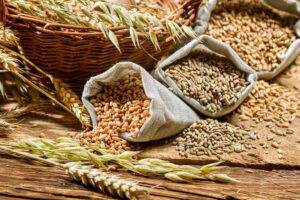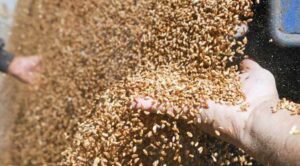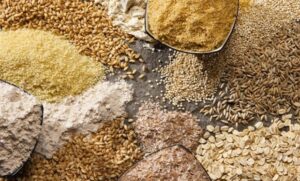
The Argentine government has temporarily abolished high export duties on grain, soybeans, and soybean products, which previously ranged from 25% to 31%, until October 31, 2025, according to GrainTrade. The move is aimed at increasing foreign exchange earnings and stabilizing the national currency amid the economic crisis.
The political context of the decision is linked to the defeat of President Javier Milei’s party in local elections in the province of Buenos Aires. This has heightened investor doubts about the government’s stability and caused the peso to devalue. The central bank has spent more than $1.1 billion of its reserves over the past three days to support the currency market. In total, Argentina has already used $20 billion in funding from the IMF this year.
The abolition of tariffs will sharply increase the supply of soybeans, soybean meal, and oil on the global market. On September 22, November soybean futures in Chicago fell by 1.5% to $371.1/t, and over the week, the decline was 3.3%.
Experts predict further pressure on prices, especially if trade negotiations between the US and China stall.
China, which diversified its imports after the trade war with the US, increased its purchases of Argentine soybeans to a six-year high of 8.81 million tons last year. This reduced domestic processing: in July, about 31% of enterprises were idle, and now the figure is even higher, according to the CIARA-CEC exporters’ association.
For Ukraine, Argentina’s decision means:
increased competition in key markets in Europe and Southeast Asia;
lower export prices for soybeans and soybean products;
pressure on domestic prices from processors due to cheaper soybean meal and oil from Latin America.

The Vilia group of companies harvested 102.7 thousand tons of grain crops from an area of 20.19 thousand hectares in the 2025 season, the company’s press service reported on Facebook.
The company noted that in 2025, the largest area among winter crops was allocated to wheat – 8.14 thousand hectares and rapeseed – 9.46 thousand hectares.
The harvest by crop showed that 74.98 thousand tons of winter wheat were harvested from 8,139 hectares with an average yield of 9.21 tons/hectare, 6.51 thousand tons of hard winter wheat (durum) were harvested from 911 hectares with a yield of 7.15 tons/ha, 3.42 thousand tons of hard spring wheat were harvested from 422 hectares with a yield of 8.10 tons/ha, 9.93 thousand tons of winter rapeseed were harvested from 1,262 hectares with a yield of 7.86 tons/ha, 32.38 thousand tons of spring rapeseed were harvested from 9,465 hectares with a yield of 3.42 tons/ha.
“In some fields, the yield reached 5.40 tons/ha for rapeseed and 11.74 tons/ha for wheat, which indicates the high potential of our land and the professional work of our team,” the company summarized, adding that it has already started the sowing campaign for the 2026 harvest.
The Viliya Group of Companies unites a number of enterprises in the Volyn and Rivne regions that cultivate 52,000 hectares, specialize in the production of agricultural crops, storage of grain, oilseeds, and legumes, grain trading, flour and cereal production, and livestock farming.
Its parent company, Volyn-Zerno-Produkt LLC, began operations in 2001. The Vilia Group consists of seven elevators in the Volyn and Rivne regions, Lutsk Feed Mill LLC, Mlyniv Feed Mill LLC, a seed plant, a number of warehouses, and its own railway track. The beneficiary of the enterprise is Yevhen Dudka.

Ukrainian farmers will harvest about 56 million tons of early grain crops and 21 million tons of oilseeds in the 2025 season, according to Deputy Minister of Economy, Environment, and Agriculture Taras Vysotsky.
“In principle, in terms of early grain crops, production is expected to be around 26 million tons, which is slightly less than last year. The decrease is due to the fact that in the southeastern regions, the yield of winter wheat and rye is, unfortunately, lower due to drought,” he said on Ukrainian Radio.
Speaking about the corn harvest, which will begin in September, the deputy minister noted that the harvest is also expected to be good. At the same time, corn crops in the southeast — parts of Dnipropetrovsk, Kirovohrad, Mykolaiv, and Odesa regions — have been virtually lost. However, the main corn belt of Ukraine — Sumy, Chernihiv, Poltava, Kyiv regions and further west, despite late sowing and late emergence, thanks to precipitation and optimal temperature conditions, has produced good plants.
“Ultimately, the corn harvest will be quite good on a national scale. We can talk about about 28 million tons, which is more than last year,” Vysotsky said, adding that the final forecast figure of 56 million tons of gross grain harvest is in line with last year’s level.
According to him, farmers will receive about 21 million tons of oilseeds in 2025, which corresponds to the 2024 figure. The production structure will include slightly more sunflower and less soybeans.
The deputy minister also noted favorable purchase prices for agricultural products.
“From a farmer’s point of view, prices are high, really good. Even now, at the time of harvest, they are not falling and are holding steady. Where there were no force majeure circumstances and no losses, these prices are really worthy as a result of working the land,” he stressed.
Speaking about livestock products, Vysotsky noted the stable situation with the production of all types of meat, eggs, and milk.
He recalled that due to the cold spring, horticulture suffered losses in the 2025 season.
“Yes, there were losses in orchards, in the early group, but for late varieties, the indicators may be slightly better and at the level of last year. In the domestic market of Ukraine, a decrease in apple prices is expected in the near future. Currently, they are holding steady because last year’s harvest is being sold. The cost includes long-term storage. But starting in September, the situation will change and stabilize by the end of October. Depending on the final harvest, the prices will be completely different,“ Vysotsky said.
According to him, the situation with vegetables is similar.
”We are approaching the mass harvest (of vegetables – IF-U). We see that the price is reacting and will decline. But there are no prerequisites for it to fall below cost. Vegetables will be more affordable for consumers, but with a normal economic effect for the producer,” Vysotsky concluded.

In 2024, Agrotrade harvested more than 236 thsd tonnes of grains and oilseeds, the company’s press service reported on Facebook.
According to the report, the harvest of wheat amounted to 95.5 thousand tons, corn – 53 thousand tons, winter rapeseed – 38.3 thousand tons, sunflower – 36.6 thousand tons, soybeans – about 13 thousand tons, hemp – 96 tons, barley – 78 tons.
“This year, soybeans suffered the biggest yield losses, in particular, due to drought. In general, abnormal weather conditions affected all crops, but we are satisfied with the results of the season. Rapeseed and corn even outperformed the forecasts, while sunflower and wheat yields remained within the plan,” said Oleksandr Ovsyanyk, Director of Agrotrade’s Agricultural Department.
The agricultural holding is confident that due to effective management, adaptation of technologies and professionalism, it will be able to maintain stable positions in the agricultural market.
Agrotrade Group is a vertically integrated holding company with a full agro-industrial cycle (production, processing, storage and trade of agricultural products). It cultivates over 70 thousand hectares of land in Chernihiv, Sumy, Poltava and Kharkiv regions. Its main crops are sunflower, corn, winter wheat, soybeans and rapeseed. It has its own network of elevators with a one-time storage capacity of 570 thousand tons.
The group also produces hybrid seeds of corn and sunflower, barley, and winter wheat. In 2014, a seed plant with a capacity of 20 thousand tons of seeds per year was built on the basis of Kolos seed farm (Kharkiv region). In 2018, Agrotrade launched its own brand Agroseeds on the market.
The founder of Agrotrade is Vsevolod Kozhemiako.

As of October 25, farmers in all regions of Ukraine have harvested 63.7 million tons of new crops from 18.1 million hectares, up from 62.2 million tons from 17.7 million hectares a week earlier.
As reported by the Ministry of Agrarian Policy and Food on Friday, 45.1 million tons (42.8 million tons) of grains and pulses, 18.6 million tons (18 million tons) of oilseeds and 8.3 million tons (6.5 million tons) of sugar beets have already been harvested.
The Ministry specified that the harvest of wheat has been completed, with 22.3 million tons harvested from 4.9 million hectares at a yield of 42.4 c/ha, barley – 5.5 million tons from 1.4 million hectares at a yield of 39.2 c/ha, peas – 465.3 million tons from 212.2 thousand hectares at a yield of 21.9 c/ha, and rapeseed – 3.5 million tons from 1.3 million hectares at a yield of 27.3 c/ha.
Corn harvesting continues with 15.4 million tons (13.2 thousand tons a week earlier) from 2.7 million hectares (67% of the plan), buckwheat – 126.9 thousand tons (124.8 thousand tons) from 87.5 thousand hectares (98%), millet – 159.5 thousand tons (158.9 thousand tons) from 85.1 thousand hectares (92%).
The oilseeds harvest is nearing completion in Ukraine. In particular, 5.6 mln tonnes of soybeans have been harvested (5.2 mln tonnes a week earlier) from 2.5 mln hectares (93%), and 9.5 mln tonnes of sunflower from 4.6 mln hectares (94%).
At the same time, the leaders in grain harvesting are farmers in Odesa region who threshed 4.4 mln ha, Poltava region – 4 mln tons, and Vinnytsia region – 3.3 mln tons. In terms of yields, the leaders are farmers in Khmelnytsky region with 68.3 c/ha, Ternopil region – 64.9 c/ha, and Chernihiv region – 63.5 c/ha.

Bulgaria is interested in importing sunflower seeds, wheat, corn and milk powder from Ukraine, said Nikolay Nenchev, Chargé d’Affaires of the Embassy of the Republic of Bulgaria in Ukraine, during a meeting with Taras Vysotsky, acting Minister of Agrarian Policy and Food of Ukraine.
According to the press service of the Ministry of Agrarian Policy and Food, Nikolay Nenchev assured that Bulgaria is ready to continue to help and cooperate with Ukraine, to facilitate the transit of Ukrainian agricultural products to the country’s seaports.
Vysotsky, for his part, noted that Ukraine highly appreciates cooperation with Bulgaria and its assistance in exporting agricultural products.
“Ukraine and Bulgaria have always had a constructive dialog on various issues. This contributes to the strengthening of bilateral relations between Ukraine and Bulgaria,” the acting minister summarized.